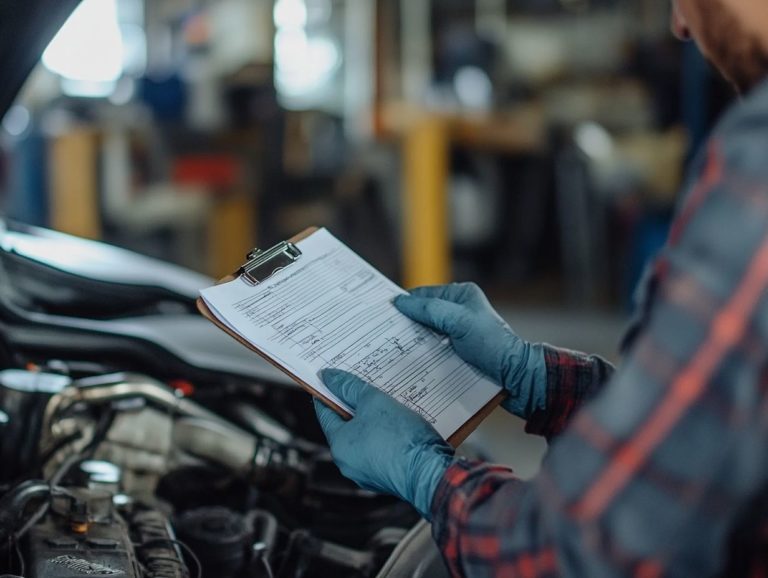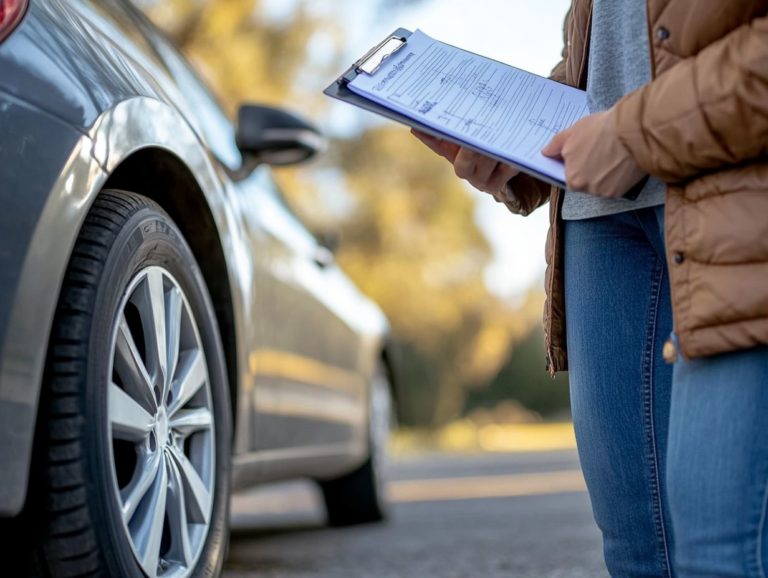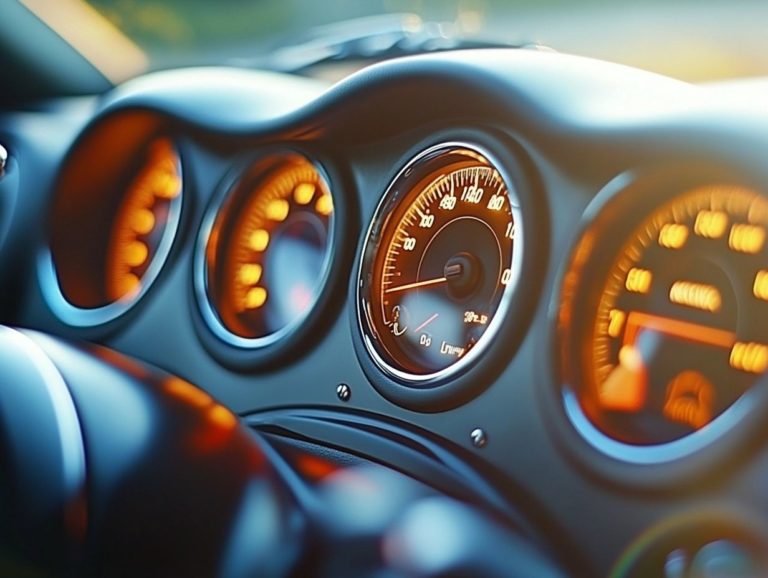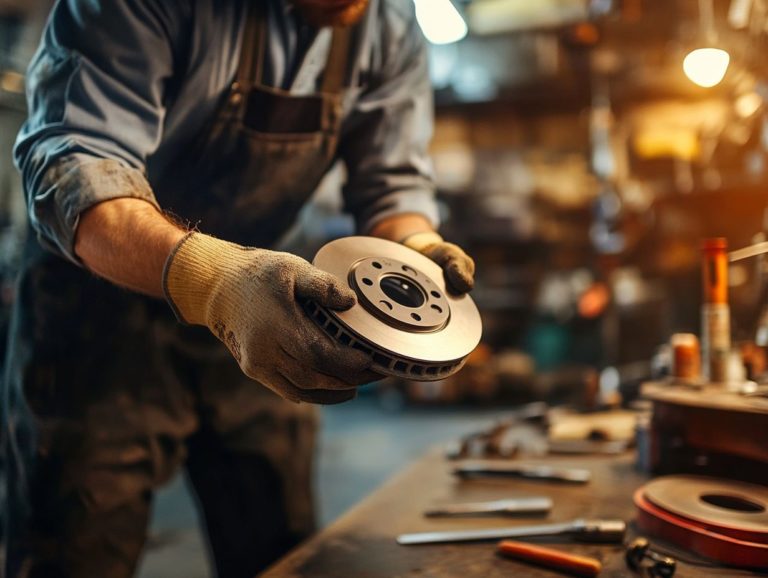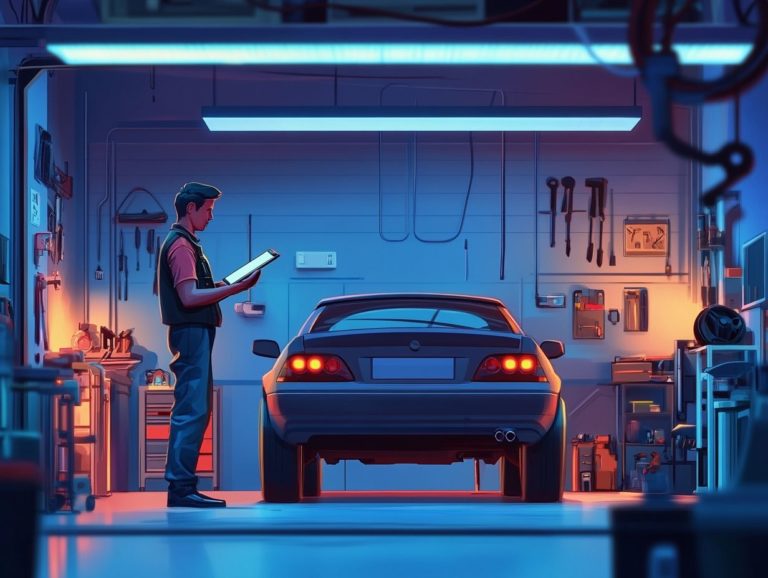10 Common Misconceptions About Car Inspections
When it comes to car inspections, it s easy to cling to misconceptions that can lead you down a costly path. Don’t risk your safety! Find out the truths about car inspections now!
You might believe that inspections are only necessary for used cars or think they re merely the mechanic’s responsibility. These myths can cloud your judgment about essential vehicle maintenance.
This article unveils ten common misunderstandings surrounding car inspections, shedding light on their significance, what the process entails, and how they can ultimately save you both time and money.
Dive in to uncover the truth behind these widespread myths and ensure your vehicle remains safe and reliable on the road.
Contents
- Key Takeaways:
- 1. Car Inspections Are Only Necessary When Buying a Used Car
- 2. Car Inspections Are Expensive
- 3. You Can Skip Car Inspections If Your Car Is New
- 4. Car Inspections Are a Waste of Time
- 5. Las inspecciones de autom viles son solo para mec nicos
- 6. Car Inspections Are Only for Older Cars
- 7. Car Inspections Are Not Required by Law
- 8. You Can Do Your Own Car Inspection
- 9. Las inspecciones de autom viles solo revisan el motor
- 10. Car Inspections Are the Same Everywhere
- Why Are Car Inspections Important?
- Frequently Asked Questions
- 1. What is the purpose of a car inspection?
- 2. Are car inspections only necessary for older vehicles?
- 3. Can I skip a car inspection if my vehicle is brand new?
- 4. Is a car inspection the same as a regular vehicle maintenance check-up?
- 5. Can I have a friend or family member who knows about cars do the inspection instead?
- 6. Are car inspections just a way for mechanics to make more money?
Key Takeaways:
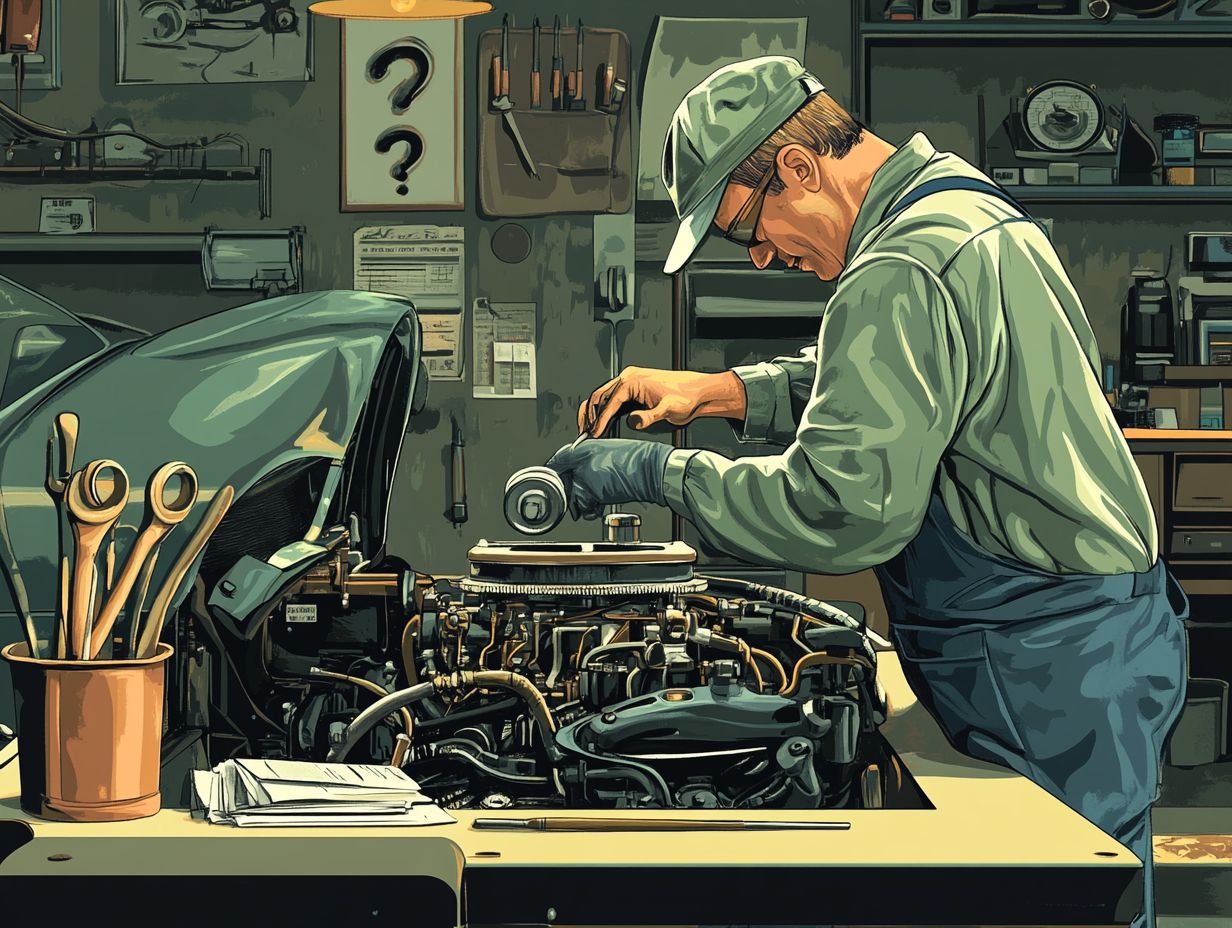
- All cars, including new ones, need inspections.
- Inspections may seem costly, but they save you money later.
- Regular checks keep your car safe and help avoid expensive repairs.
1. Car Inspections Are Only Necessary When Buying a Used Car
Many individuals think car inspections are only necessary when purchasing a used vehicle. This belief overlooks the importance of regular inspections for overall safety and performance.
Routine checks can uncover potential issues that could impact your vehicle s reliability. This ensures it stays in peak condition long after you drive it off the lot.
Regular inspections by certified car experts can expose underlying issues that might not be immediately noticeable. This ultimately makes driving safer.
Thorough inspections do more than just ensure safety; they also enhance fuel efficiency and help preserve your vehicle’s value over time.
By utilizing vehicle history reports during these inspections, along with insights from the technicians, you gain invaluable context for ongoing maintenance decisions. This comprehensive approach helps maintain your vehicle’s performance and extends its lifespan.
2. Car Inspections Are Expensive
One prevalent misconception is that car inspections come with a hefty price tag. However, when you weigh the potential costs of neglecting vehicle maintenance, investing in inspections proves to be a wise financial decision, as outlined in what car buyers need to know about inspections.
By proactively identifying issues, you can steer clear of daunting repair bills that often spring from minor problems left unchecked. For example, a simple tire alignment problem can escalate into uneven tire wear.
Using services like Lemon Squad provides peace of mind through comprehensive evaluations and fosters a culture of regular maintenance. This significantly enhances your vehicle’s lifespan and reliability.
This approach saves you money and ensures your safety on the road, making regular inspections a financially sound choice for any discerning car owner.
3. You Can Skip Car Inspections If Your Car Is New
Many individuals mistakenly believe that skipping car inspections is acceptable for newer vehicles. However, regular inspections are essential for maintaining optimal engine performance.
Even new cars require consistent vehicle maintenance to monitor performance metrics and identify early warning signs. By keeping up with these vital evaluations, you can catch minor issues before they escalate into costly repairs.
This not only saves you money but also enhances your vehicle’s safety. Diligent maintenance habits play a significant role in preserving your car s performance.
Well-maintained cars tend to retain a higher resale value, maximizing your investment when it s time to sell. In a world where vehicle technology advances rapidly, proactive inspections are a pivotal component of responsible vehicle ownership.
4. Car Inspections Are a Waste of Time
You might view car inspections as a hassle, but this perspective overlooks their crucial role in ensuring your vehicle’s safety and reliability.
Investing time in these inspections can prevent serious safety issues, enhance your vehicle’s performance, and ultimately save both time and money on major repairs later.
By scheduling regular inspections, you catch small issues before they snowball into larger, costlier problems that could compromise your safety and lead to extended downtime.
These inspections assess critical safety features, like brakes, tires, lights, and steering components. For instance, ensuring your brake system is in peak condition not only protects you but also keeps other road users safe.
Thus, making time for these assessments is a proactive strategy that extends your car’s lifespan and gives you peace of mind every time you hit the road.
5. Las inspecciones de autom viles son solo para mec nicos
Believing that car inspections are solely for mechanics can lead you to miss out on the substantial benefits they offer, including insights from understanding the car inspection process.
Mobile technicians and independent mechanics can provide invaluable insights, equipping you with consumer advice that supports you throughout your vehicle ownership journey.
Engaging with these professionals helps you gain a clearer understanding of your vehicle’s condition, identify potential issues before they escalate, and make informed decisions about maintenance and repairs.
This heightened awareness boosts your safety on the road and can lead to significant cost savings over time.
Plus, independent mechanics and mobile technicians often provide greater accessibility, offering convenience that traditional shops may lack. This encourages a more proactive approach to vehicle maintenance.
6. Car Inspections Are Only for Older Cars
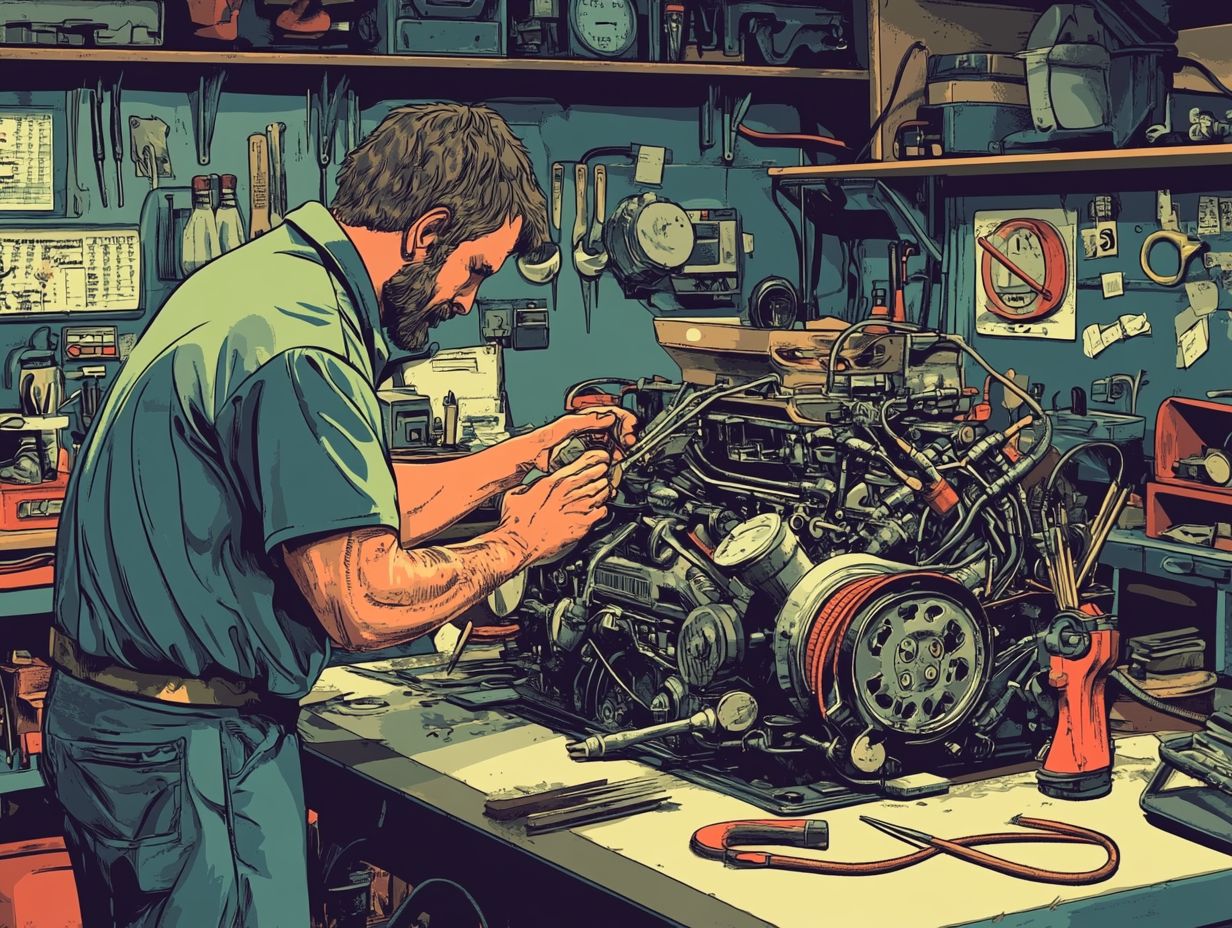
You might think car inspections are reserved for older vehicles, but the truth is that regular inspections are crucial for cars of all ages.
Maintaining optimal performance and extending the life of your vehicle should be a priority.
Even newer cars can develop issues that might slip under the radar without routine checks.
For example, a brand-new vehicle could face problems with its electrical system or advanced technology features that might go unnoticed without a thorough examination.
Common issues like tire wear, brake functionality, and fluid leaks can arise in any vehicle, whether it s fresh off the lot or has been cruising for several years.
These inspections play a vital role in a structured maintenance schedule, enabling you to catch issues early on. This proactive approach minimizes the risk of costly repairs and ensures your safety on the road.
Regular inspections provide peace of mind for both you and your passengers, making car care a smart investment.
7. Car Inspections Are Not Required by Law
While car inspections aren t legally required in every state, embracing a proactive inspection routine is essential for keeping your vehicle compliant and ensuring your safety on the road.
In many areas, emissions checks are a must, emphasizing the importance of consistent inspections.
The regulations surrounding car inspections can differ dramatically from state to state. Some regions may mandate stringent annual inspections, while others might only require periodic checks based on your vehicle’s age or mileage.
This variability highlights the importance of understanding the local laws that apply to you. By staying compliant, you sidestep potential legal troubles like fines or penalties while enhancing your vehicle’s safety and performance.
Regular inspections are your ticket to identifying potential issues before they escalate, ensuring your vehicle runs efficiently and minimizing the chances of breakdowns or accidents down the line.
Don t wait until it s too late! Schedule your car inspection today!
8. You Can Do Your Own Car Inspection
While the allure of DIY car inspections is undeniable, relying on certified car technicians guarantees a level of thoroughness and expertise that an untrained eye simply can’t provide. Professional inspections deliver a comprehensive assessment of your vehicle’s maintenance needs.
Sure, you can check fluid levels, tire pressure, and the condition of your wipers with ease. These routine checks are manageable. However, it’s easy to overlook critical issues like brake performance, suspension wear, or potential electrical problems that demand specialized knowledge.
While DIY checks are cost-effective and enabling, they may result in missed warnings or undiagnosed concerns. Recognizing anomalies is key; this is where the value of professional services clearly surpasses any initial savings.
By understanding what you can inspect on your own, you can achieve a harmonious balance between hands-on involvement and expert intervention, ensuring a safer, more reliable driving experience.
9. Las inspecciones de autom viles solo revisan el motor
A common misconception is that car inspections are all about the engine, but the reality is much broader. Inspections cover a comprehensive range of components, including brakes, safety features, and fluid levels. When you opt for a thorough vehicle inspection, you gain a holistic view of your car s overall condition.
Take the examination of brake pads, for instance. Worn or damaged pads can drastically compromise your stopping power, creating a significant safety risk. There s also the air filter; checking it ensures your engine gets the clean air it needs, boosting performance and fuel efficiency.
Let s not forget about tire pressure, which is often overlooked but essential for vehicle stability and traction. Improperly inflated tires can lead to accidents and shorten their lifespan. Together, these components don t just enhance your car s reliability; they also protect you and your passengers, guaranteeing a smooth and secure driving experience.
10. Car Inspections Are the Same Everywhere
Many people assume that car inspections are uniform across different regions, but the reality is quite different. These inspections can vary significantly based on local regulations and dealership practices.
Understanding these differences is essential for ensuring your vehicle meets compliance and safety standards. Factors such as state laws, environmental concerns, and even the economic climate play crucial roles in shaping inspection protocols.
For example, some areas may emphasize emissions testing, reflecting a community’s dedication to environmental health, while others might prioritize structural integrity and safety.
These regional variations can create confusion for car owners who expect standard requirements. As a result, you might encounter unexpected costs or necessary repairs, highlighting the importance of staying informed about local standards.
By doing so, you can avoid potential penalties and enhance the overall reliability of your vehicle.
Why Are Car Inspections Important?
Car inspections are crucial for maintaining both your vehicle’s safety and reliability, forming an integral part of responsible vehicle ownership. By following maintenance recommendations and seeking expert advice, you can prevent accidents and avoid costly repairs, ensuring your car operates at its best.
Regular inspections not only boost safety but also save you money in the long run. When you have your vehicle checked routinely, potential issues can be identified early, allowing for timely repairs before they develop into significant problems.
Staying compliant with local regulations regarding vehicle conditions can help you avoid fines and provide peace of mind while you’re behind the wheel. This proactive approach keeps you informed about your vehicle’s overall health, fostering a sense of security and confidence as you navigate the roads.
Don’t risk your safety get your car inspected regularly! Book your inspection today to ensure your car is safe and reliable!
What Is Checked During a Car Inspection?
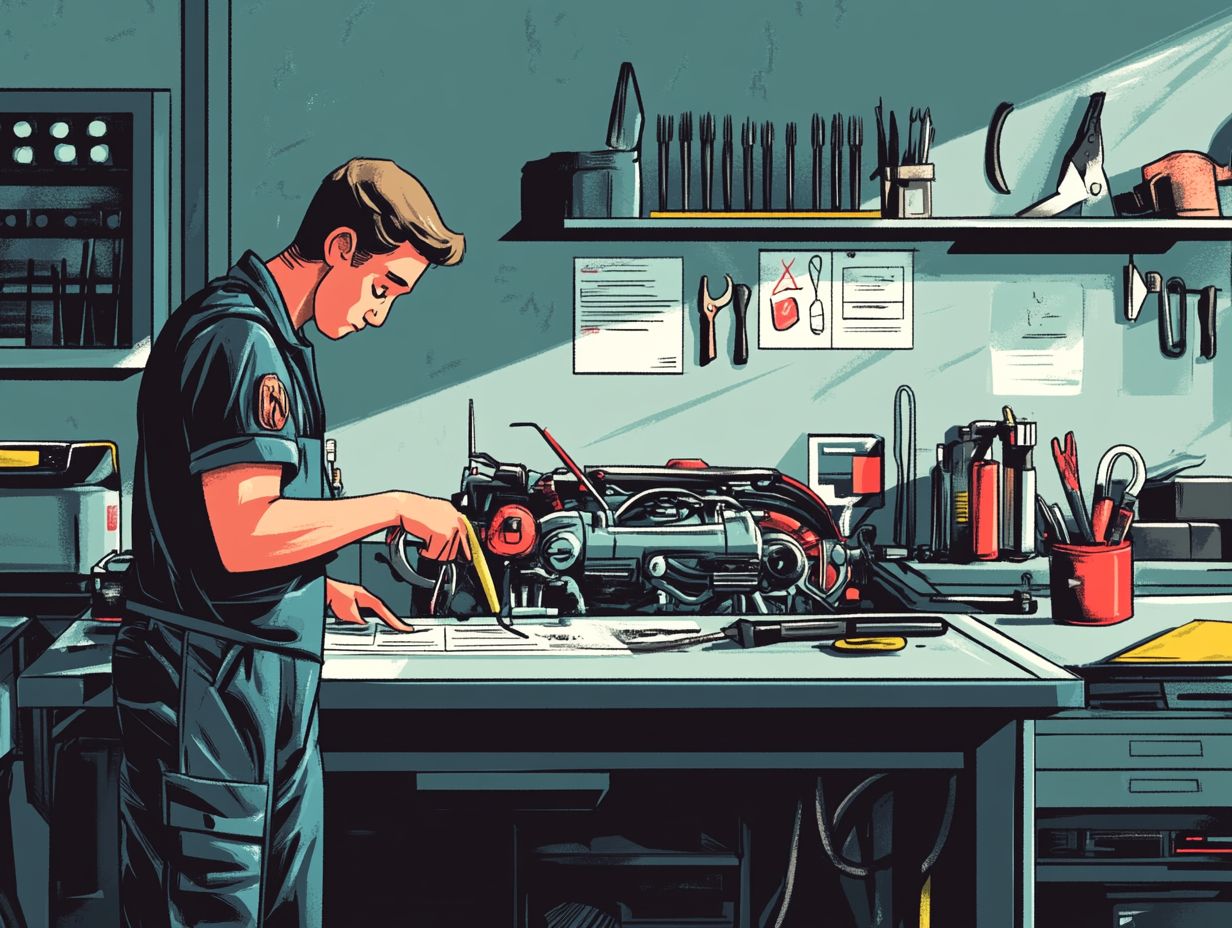
A car inspection follows a detailed checklist, checking everything from oil and coolant levels to brake functionality and tire pressure. This ensures your vehicle is safe and performs well.
This thorough examination guarantees that every critical system is functioning optimally, which is vital for preventing accidents and breakdowns.
Each fluid level plays a significant role in maintaining engine health and overall efficiency.
For brake checks, it s not just the pads and rotors that get attention; the brake lines are also assessed, ensuring that your stopping ability is both responsive and reliable.
Tire pressure affects fuel efficiency and handling, while inspections of headlights, taillights, and turn signals confirm that your visibility and communication on the road are at their best.
By adhering to this checklist, you can enhance your vehicle’s reliability and significantly prolong its lifespan.
How Often Should a Car Be Inspected?
The frequency of car inspections varies based on factors like your vehicle’s age, mileage, and the manufacturer’s recommendations. However, following a maintenance schedule is crucial for your car s long-term performance.
Most newer cars need inspections once a year or every 10,000 to 15,000 miles. Older cars should be checked more often, maybe every six months.
If you often drive in harsh conditions or stop-and-go traffic, stay sharp! Regular inspections keep you safe on the road and help spot potential issues early.
This proactive approach helps maintain your vehicle s reliability and can significantly enhance its resale value down the line.
What Are the Consequences of Not Getting a Car Inspection?
Ignoring inspections can lead to costly repairs and safety risks. A small issue, like worn brake pads, can cause a serious accident.
Unchecked engine problems can quickly spiral into costly repairs. Regular inspections act as a proactive strategy, identifying small issues before they evolve into major expenses or safety threats.
By committing to routine checks, you ensure your vehicle runs smoothly while also contributing to a safer driving environment for everyone on the road.
How Can a Car Owner Prepare for a Car Inspection?
To prep for an inspection, check your tire pressure, and ensure all lights work. Gather your vehicle registration and proof of insurance to avoid surprises.
Taking the time to prepare saves you from potential headaches later on. Inspect fluid levels and top off where needed.
By being proactive, you not only enhance your chances of passing the inspection but also extend the life of your vehicle.
What Are the Differences Between State Car Inspections and Emissions Tests?
Knowing the difference between state car inspections and emissions tests is key to keeping you and our roads safe! Each serves a unique purpose in ensuring compliance with vehicle regulations and protecting the environment.
State inspections evaluate the overall safety and functionality of your vehicle. They ensure critical components like brakes, tires, and lights are in optimal condition. This process minimizes accident risks, protecting you and other road users.
In contrast, emissions tests measure the pollutants emitted from your vehicle’s exhaust system. These tests ensure your vehicle meets environmental standards, helping to reduce air pollution and protect public health.
Together, these processes help maintain road safety and protect our environment.
Frequently Asked Questions
1. What is the purpose of a car inspection?
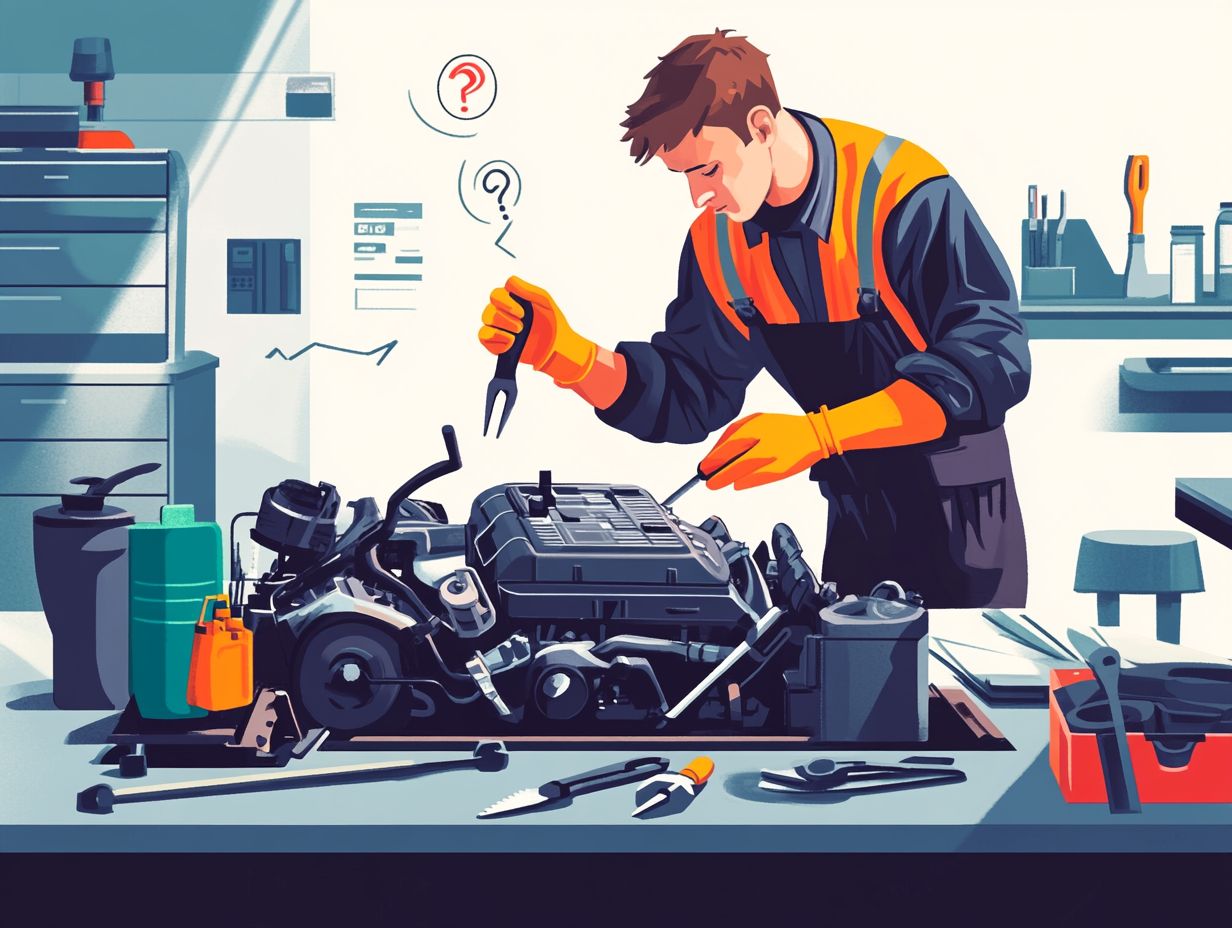
A car inspection checks the safety and road performance of a vehicle. It ensures that the car meets legal and environmental standards set by the government.
2. Are car inspections only necessary for older vehicles?
No, car inspections are necessary for all vehicles, regardless of their age. Even newer cars can have safety or environmental issues that need to be addressed.
3. Can I skip a car inspection if my vehicle is brand new?
No, even new cars require inspections. New vehicles may have manufacturing defects or issues that need to be identified and fixed before they become major problems.
4. Is a car inspection the same as a regular vehicle maintenance check-up?
No, a car inspection is a more comprehensive examination of the car’s overall condition. A regular maintenance check-up focuses on specific areas of the car.
5. Can I have a friend or family member who knows about cars do the inspection instead?
No, car inspections must be conducted by certified professionals who have the necessary knowledge, skills, and equipment to thoroughly inspect a vehicle.
6. Are car inspections just a way for mechanics to make more money?
No, car inspections ensure the safety and road performance of a vehicle. Mechanics are required to follow strict guidelines and cannot invent issues or make unnecessary repairs to earn more money.

